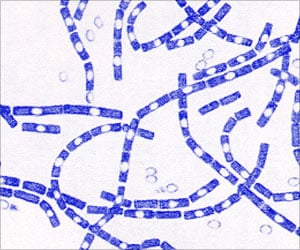The gut microbiome of people with inflammatory bowel disease differs from that of healthy patients and is associated with symptoms of the disease.
- Scientists have identified that inflammatory disease patients suffer from fluctuation in microbiome associated with changes in severity of symptoms
- There are lower number of beneficial microbes in people with inflammatory bowel disease
- Alteration in the gut microbiome of inflammatory disease patients could help improve the condition
Dr. Janet Jansson from the Pacific Northwest National Laboratory of the Department of Energy (PNNL) said that the scientists knew that there were some important and beneficial microbes which are present in lower numbers in people with inflammatory bowel disease. The difference between healthy individuals and patients were substantial, with patients having a less stable gut microbiome. Dr. Jansson is the study’s corresponding author but she was assisted by scientists from Germany, United States, Sweden and Spain.
Fluctuations in the Gut Microbiome
Inflammatory bowel disease belongs to a group of diseases where the immune system of the patient targets the microbes in the host gut resulting in a chronic inflammatory disease. There are two main types of IBD, Crohn’s disease and ulcerative colitis. The main symptoms of both the types of inflammatory bowel disease are- Swelling, cramps or pain in the stomach
- Bloody diarrhea
- Fatigue
- Weight loss
- Anemia
- Vomiting
- Fever
The treatment for inflammatory bowel disease involves the administration of anti-inflammatory drugs as well as steroids. In extreme cases, surgery would have to be considered.
Difference between Microbiome of Intestinal Bowel Disease (IBD) Patients and Healthy people:
It has always been known that the microbiome of people with inflammatory bowel disease
- had fewer beneficial microbes
- was more likely to have E. coli and Enterobacteriaceae
Studying the Gut Microbiome
Gastroenterologist, D. Jonas Halfvarson from the Örebro University and colleagues analyzed 137 people, which included patients with ulcerative colitis, ileal disease and Crohn’s disease, as well as healthy controls, for a period of two years.- Fecal samples were collected for two years, once every three months
- Symptoms of the patients were monitored
- Totally, the study resulted in the collection of 683 fecal samples
- Genetic sequencing technique was utilized to identify the microbes
- Gut microbiome was inconsistent
- There were dramatic shifts in microbiomes
- Certain bacteria were almost absent at some point
- A considerable population of microbiome was replaced by other microbes in just a few months
- People with Ileal disease showed maximum discrepancy in microbiome community
- Patients who consumed steroids were faced with more microbiome fluctuations
- Flare-ups in symptoms were also associated with microbiome fluctuations
Dr. Halfvarson said that the results were an important step in identifying how the microbiome was associated with the dynamism of the inflammatory bowel disease. Alterations in the microbiome by mirroring the microbiome of healthy individuals could aid in better treatment.
It has always been fascinating to understand the intricacy of the relationship between gut microbiome and the health of an individual. The current study that focuses on the relevance of gut microbiome on the symptoms associated with inflammatory bowel disease highlights the need to actively maintain a ‘beneficial’ species of microbiome.
References:
- Inflammatory Bowel Diseases - (http://www.nhs.uk/conditions/inflammatory-bowel-disease/pages/introduction.aspx)
Source-Medindia
















